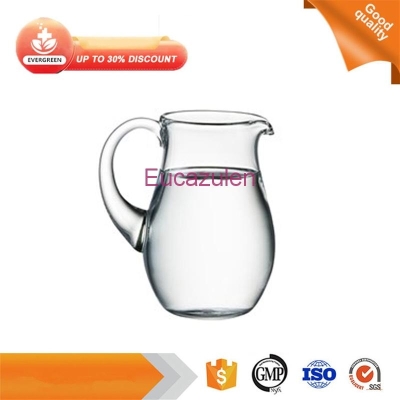-
Categories
-
Pharmaceutical Intermediates
-
Active Pharmaceutical Ingredients
-
Food Additives
- Industrial Coatings
- Agrochemicals
- Dyes and Pigments
- Surfactant
- Flavors and Fragrances
- Chemical Reagents
- Catalyst and Auxiliary
- Natural Products
- Inorganic Chemistry
-
Organic Chemistry
-
Biochemical Engineering
- Analytical Chemistry
- Cosmetic Ingredient
-
Pharmaceutical Intermediates
Promotion
ECHEMI Mall
Wholesale
Weekly Price
Exhibition
News
-
Trade Service
Yimaitong compiles and arranges, please do not reprint
without authorization.
E.
coli is the most common gram-negative pathogen
that causes hematogenous infections (BSIs).
Retrospective studies have shown that ceftriaxone-resistant E.
coli BSIs have worse
clinical outcomes compared with BSIs caused by ceftriaxone-sensitive E.
coli isolates.
However, it is unclear whether these poor outcomes persist
after adjusting for confounding factors such as delay in aggressive antibiotic therapy, immune impairment, and challenges in achieving source control.
Recently, a prospective multicenter study compared clinical outcomes
in patients with ceftriaxone-sensitive E.
coli and ceftriaxone-resistant E.
coli infection.
The content was published on
Open Forum Infect Dis.
The study included a total of 300 patients with E.
coli BSIs hospitalized in 14 hospitals in the United States between November 2020 and April 2021, including 150 with ceftriaxone-resistant E.
coli infection and 150 with
ceftriaxone-sensitive E.
coli infection.
The primary outcome of the study was the sequential desirability of the order of results at day 30 (DOOR), with a null hypothesis
of a 50% probability of worse outcomes in the ceftriaxone-resistant group.
The results of the analysis showed that the prognosis was worse for patients in the ceftriaxone-resistant group, with 30-day mortality rates of 13% and 8%,
respectively.
The differences were much smaller after adjusting for possible confounders, suggesting that at least some of the observed resistance effects were due to patient characteristics rather than the bacteria themselves
.
In an unadjusted DOOR analysis, the researchers found a 58% chance (95% bootstrap CI, 52%-63%)
that patients with sportriaxone-resistant BSI had a worse clinical outcome compared with sirtriaxone-sensitive BSI.
Secondary outcomes included unadjusted and adjusted differences between the proportion of 30-day mortality in patients with ceftriaxone-resistant and ceftriaxone-sensitive BSI, –5.
3% (95% CI, -10.
3% to -0.
4%) and -1.
8 (95% CI, -6.
7% to 3.
2%), respectively; The median length of hospital stay after culture was 8 days and 6 days, respectively; Long-term care facility admissions rates were 22% and 12%,
respectively.
These results underscore the importance of judicious use of antibiotics to reduce the development of
antibiotic resistance and its subsequent negative impact on patient outcomes.
The study had limitations, including the possibility of other unmeasured confounding factors and the inability to investigate the effect of specific antibiotics' differences in clinical outcomes due to the heterogeneity of the antibiotic treatment
studied.
In summary, the results of this prospective multicenter study showed that after adjusting for important confounding factors, patients with ceftriaxone-sensitive E.
coli BSI generally had a worse prognosis than patients with ceftriaxone-sensitive E.
coli BSI, an observation that was mainly driven
by host factors.
In addition, effective empiric treatment may further reduce differences
in outcomes between groups.
Resources:
1.
Tamma PD, Komarow et al.
Clinical Impact of Ceftriaxone Resistance in Escherichia coli Bloodstream Infections: A Multicenter Prospective Cohort Study.
Open Forum Infect Dis.
2022 Oct 27; 9(11):ofac572.
doi: 10.
1093/ofid/ofac572.
PMID: 36381622; PMCID: PMC9645644.
2.
Patients with ceftriaxone-resistant E.
coli bloodstream infections have worse outcomes.
Healio.
November 15, 2022.







